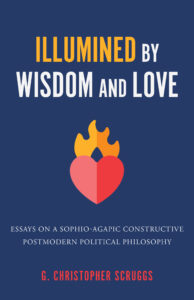 This posting is a rework of a prior blog and sermon. It seemed appropriate for the time we were in. I am posting it on New Year’s Eve as we say goodbye to 2024 and look forward in hope to 2025.
This posting is a rework of a prior blog and sermon. It seemed appropriate for the time we were in. I am posting it on New Year’s Eve as we say goodbye to 2024 and look forward in hope to 2025.
My favorite carol is “I Heard the Bells on Christmas Day,” written during the American Civil War, a time in some ways resembling our own. Henry Wadsworth Longfellow wrote the lyrics, which were later put to music. By Christmas 1863, Wadsworth’s wife had tragically died, and his son had been seriously injured in the American Civil War. On Christmas Day, he wrote a poem capturing the conflict in his own heart and the world he observed around him that Christmas Day. Here are the lyrics:
I heard the bells on Christmas day, /Their old familiar carols play; In music sweet, the tones repeat, / There’s peace on earth, good will to men.”
I thought how, as the day had come, /The belfries of all Christendom. Had rolled along the unbroken song/ Of peace on earth, goodwill to men.
And in despair, I bowed my head: “There is no peace on earth,” I said, “For hate is strong, and mocks the song, Of peace on earth, goodwill to men.” [1]
The poem and Christmas Carol point out the divergence between the peaceful world for which Christians and others long and the violent reality of human history.
Our War-Torn World
Jesus warned his followers that wars and rumors of wars would mark the time between his first and second coming (Matthew 28:6). This Christmas Season, for the second Christmas, there are wars in the Ukraine and Israel and Gaza that threaten to engulf the entire Middle East. The parties engage in physical, psychological, and emotional warfare. Around the world, nations and international bodies have interceded themselves into the conflicts. Peace seems often on the horizon but then recedes to a far horizon. Maybe next year will be different, but this year, we can say with the poet, “There is no peace on earth—for hate is strong and mocks the song of peace on earth goodwill to men.”
The World We Long For.
On Christmas Eve, we traditionally light the Christ Candle, a symbol that the One foretold by the prophets, the true Son of David, Wonderful Counselor, the Prince of Peace, the Wisdom and Love of God in human form, has come. His reign is not complete, but it has begun. It is represented imperfectly and sometimes unrecognizably in his Church, the gathering of his children by faith.
In the Narnia books, the true King of Narnia, Aslan—a Christ figure—is coming. One indication that Aslan is coming is that the long Narnia winter is ending, and Spring is finally coming. Even Santa Claus appears to give the children gifts before Spring arrives. In Isaiah, the prophet also uses an image of nature being changed because of what the Messiah will do when he comes as a symbol of the spiritual healing of the land of his people. In Isaiah 11, after speaking of the supernatural justice of the expected Anointed One, the prophet has the following vision:
Righteousness will be his belt, and faithfulness will be the sash around his waist. The wolf will live with the lamb, the leopard will lie down with the goat, the calf and the lion and the yearling together,and a little child will lead them. The cow will feed with the bear, their young will lie down together,and the lion will eat straw like the ox. The infant will play near the cobra’s den, and the young child will put its hand into the viper’s nest. They will neither harm nor destroy on all my holy mountain,for the earth will be filled with the knowledge of the Lord as the waters cover the sea (Isaiah 11: 5-9).
The idea is that justice and injustice impact nature. When we seek justice and to live peacefully with others, humans and lives are changed for the better. [2] It is also a reminder that the hope for an entirely peaceful and just world is eschatological. In this world, wolves and lambs will never lie down together—and it is the foolish lamb that believes otherwise. This a lesson many in our culture need to learn.
Whether or not we visualize the future in poetic terms, we all long for a just world and believe that a just and harmonious world would be happier than the world we live in. Unfortunately, almost all of us also desire our favorite injustices to remain part of that world. We want the injustice that impacts us removed, but we do not feel so strongly about the injustice we inflict on others. God will not have it this way. God wants to get rid of all injustice, the injustice of the rich and the poor, of the powerful and the powerless, of the insiders and the outsiders. God desires a perfectly just world. There will not be peace until there is justice for all—and that goal escapes accomplishment by selfish, self-centered, and often immoral humans.
The One Hope We Have.
The cross reminds us that God suffers injustice with everyone who suffers injustice. Christ was arrested unjustly, tried unjustly, and crucified unjustly. God knows and understands the reality and power of injustice. The cross is where the mercy and justice of God meet—and it reminds us that God is with us when we suffer injustice. The resurrection is our reminder that God will ultimately win over injustice. Christmas is our reminder that the King has come. Winter may not be over, and it may get colder before spring, but spring is coming.
 I heard the Bells on Christmas Day ends on this word of Hope:
I heard the Bells on Christmas Day ends on this word of Hope:
“Then pealed the bells more loud and deep:/ “God is not dead, nor does He sleep, / For Christ is here; His Spirit near/ Brings peace on earth, goodwill to men.” [3]
Our hope is not in a political party or an army. It is in the one who is the true King of Kings and Lord of Lords–one who is not just a better human king, but the kind of ruler we humans can only wish to be.
I wish all my readers a very Merry Christmas this warm and rainy Texas Christmas Day (the day it was written) and this New Year’s Eve (the day it was published.
Copyright 2024, G. Christopher Scruggs, All Rights Reserved
[1] Henry Wadsworth Longfellow, “I Heard the Bells on Christmas Day (I864).
[2] I have noted more than once that we modern people too often discount and fail to recognize the impact of sin on the world we inhabit and its consequences, even upon those with whom we have no direct impact. Just as in the physical world, there can be “spooky action at a distance” in the subatomic world, in the macro world, I am convinced that spiritual realities “act at a distance.” I have seen the phenomena with my own eyes.
[3] “I Heard the Bells on Christmas Day,” previously cited.






